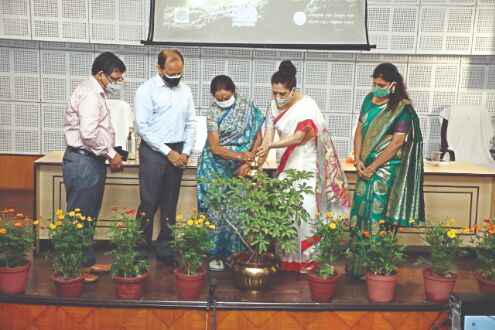State draws up Rs 120 crore plan to protect East Kolkata Wetlands

Kolkata: In a bid to protect the East Kolkata Wetlands (EKW) — regarded as the lungs and kidneys of the city — the state Environment department has come up with a five-year comprehensive EKW Management Plan.
"EKW, a Ramsar site, is capable of naturally treating wastewater. It is not only responsible for preventing the city from massive inundation in case of heavy rains but also ensures that groundwater depletion does not emerge as a major threat to the city. The EKW Management Plan (2021-26) has been conceived after year-long research with an aim to protect the wetlands and at the same time usher in development in the livelihood of the farmers and the fishermen, who are dependent on this unique environment site," Vivek Kumar, Additional Chief Secretary of Environment department said during a programme held on the occasion of World Environment Day (June 5).
The plan — pegged at Rs 120 crore — has already got the necessary approval. "There are five components associated with the project, including enforcement measures for illegal construction or similar activities that may disturb the ecological balance of the site and most importantly impart training among farmers and fishermen about the best practices through technology and research without using any pesticide, which will help in the enhancement of their livelihood," Kumar said.
EKW spanning over an area of 8,000-hectare patchwork of tree-fringed canals, vegetable plots, rice paddies and fish ponds — and more than 20,000 people who work on them — daily transform one-third of the city's sewage and most of its domestic refuse into a rich harvest of fish and fresh vegetable. The wetlands serve as a natural sponge, absorbing excess rainfall and doing its bit to reduce pollution. The wetlands are under threat due to the exponential expansion of real-estate projects in eastern Kolkata, especially in Salt Lake and Rajarhat.
The place is known for its rich biodiversity and rare aquatic animals. Marsh Mongoose was discovered by the Zoological Survey of India from this wetland itself.
Illegal dumping of waste by several urban local bodies resulting in contamination of the water of EKW has been under the glare of the National Green Tribunal after a petition was filed by environmentalist Subhas Dutta in May 2019. The NGT, in July 2020, had ordered the scientific shifting of legacy waste — also called bio-mining — accumulated in the wetlands for decades.



